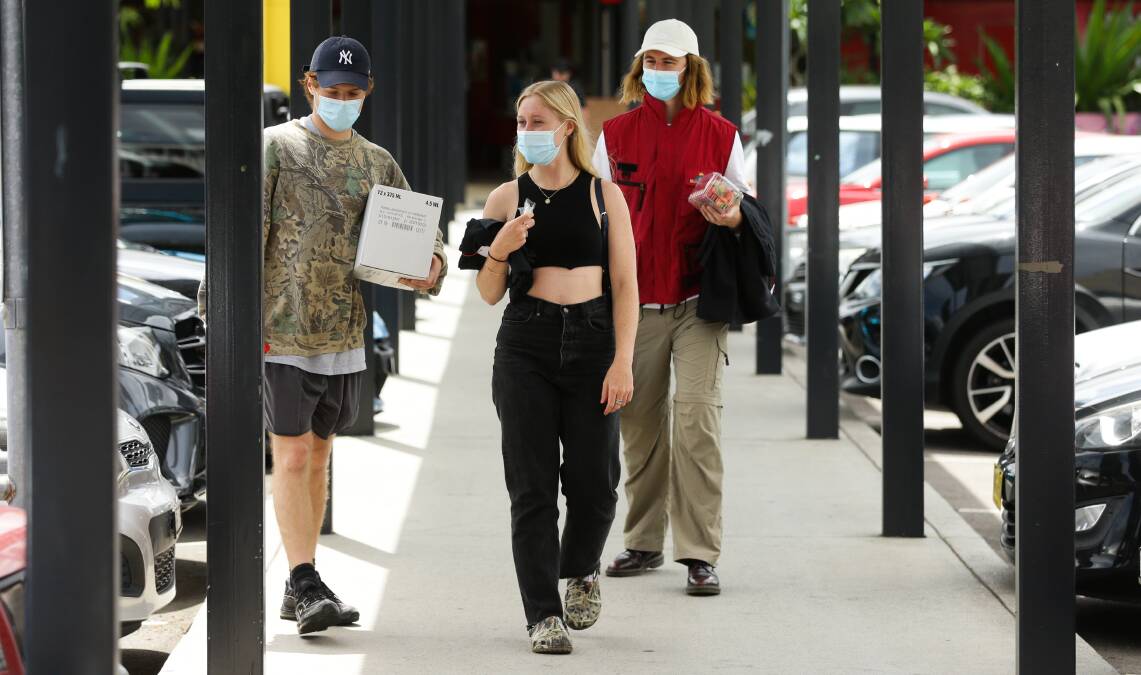Canberra hospitals, schools and businesses are bracing for another surge of COVID-19 following a rise in hospitalisations and ward outbreaks.
The ACT is likely in the middle of a COVID wave, Canberra Health Services chief executive Dave Peffer recently warned in an email to staff.
"Things could be turning. Updated numbers suggest the ACT is in the midst of an [Omicron] XBB.1.5 wave. Our hospitalisations are trending up, with the week-to-week rise being the second fastest since mid-December," he wrote.
"Modelling for the week ahead is predicting a sustained increase in weekly case numbers, and an increase in hospitalisations.
"With recent outbreaks in a number of inpatient wards, it's the right time to be reviewing our settings."

Higher cases of COVID-19 in the community could lead to staff shortages in hospitals, health centres, schools and businesses.
Canberra Health Services is being advised on how to "prepare for an accelerating wave, and the cooler days ahead", Mr Peffer wrote.
"We're working through the details of what any changes might look like - but I'm foreshadowing the potential for change in the weeks ahead."
Average daily cases in the ACT rose by 21 per cent in the week beginning March 27, Australian government data showed.
Public schools are also preparing for likely teacher shortages during winter, a letter by ACT Education Directorate director general Katy Haire showed.
"There may be times in the coming months where unexpected staff absences, and the national teacher shortage, will mean that some schools may need to modify their programs," the letter said.

Blake Proberts is co-owner of the Two Before Ten group, which has 12 bars and cafes in the Canberra region.
A surge in COVID-19 could "wipe out" hospitality staff, he said.
"It's a little daunting, but because we've experienced it and we have the procedures and policies in place to handle it, it's not really that scary," Mr Proberts said.
"What worries me more is if there's a policy change, or if it's so big that there's another lockdown and it's those inconsistencies that COVID creates."
He said the business prepared for a rise in infections by overstaffing and exposing workers to different venues in case they needed to cover for sick colleagues.

Mr Proberts said it was also important staff knew they would not be punished for taking work off while sick, and could make up hours when they came back.
Like the rest of Australia, Omicron variants make up most of the COVID cases in the territory, an ACT government spokesperson said.
"XBB recombinant variants accounted for 78 per cent of recent samples sequenced in the ACT, with the XBB.1.5 making up 45 per cent of these," they said.
XBB.1.5, also known as Kraken, had a "slight immune escape advantage", genomics expert Dr Ash Porter said.
This meant it was harder for the human body to resist the virus.
All respiratory illnesses spread more in colder months, Dr Porter said.
"People spend more time indoors breathing on each other and less time outdoors, where there's less infectious particles," Dr Porter said.
Having a number of different variants in the community could lead to people catching COVID multiple times in a short period of time, Deakin University epidemiologist Professor Catherine Bennett said.
"Immunity from one infection doesn't give quite as good a protection from the other [variant] in those first few months," she said.

Promisingly, the latest uptick in COVID cases looks more like a "slow rise" than surge, Dr Bennett said.
"We are seeing a sort of slow rise in cases in ACT and NSW, across the country," she said.
Indicators of a rise in cases includes hospitalisations, ICU admissions, anti-viral requests and aged care outbreaks.
She said states and territories were in different states of outbreaks.
"They've all gone up slightly but it hasn't taken off in the way other surges have," Dr Bennett said.
"We might see a change in the variant, but it doesn't necessarily translate to a big wave of infections, let alone hospitalisation."
Dr Bennett said Omicron variants were more resistant to the original methods of preventing infection, like mask mandates or lockdowns.
An ACT government spokesperson said Canberrans should be mindful over the Easter long weekend.
"Stay at home if you feel unwell. Test for COVID-19 if you have symptoms. Even if the test is negative, remain at home until you're feeling better. Practise good hand and respiratory hygiene and consider wearing a mask when entering public indoor settings," they said.
They also encouraged Canberrans to book in for COVID-19 and influenza vaccines.
"If you are at higher risk of severe illness from COVID-19 speak to your regular health care provider about what to do if you become unwell," they said.
"If you test positive for COVID-19 over the long weekend and need early access to treatment, you can call the Canberra After hours Locum Medical Service (CALMS) on 1300 422 567 or the COVIDCare@Home on 5124 3085."
We've made it a whole lot easier for you to have your say. Our new comment platform requires only one log-in to access articles and to join the discussion on The Canberra Times website. Find out how to register so you can enjoy civil, friendly and engaging discussions. See our moderation policy here.







